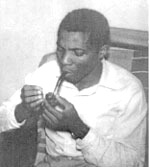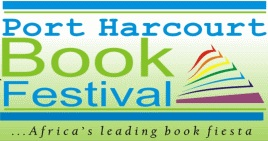Related Research Articles

Chinua Achebe was a Nigerian novelist, poet, and critic who is regarded as a central figure of modern African literature. His first novel and magnum opus, Things Fall Apart (1958), occupies a pivotal place in African literature and remains the most widely studied, translated, and read African novel. Along with Things Fall Apart, his No Longer at Ease (1960) and Arrow of God (1964) complete the "African Trilogy". Later novels include A Man of the People (1966) and Anthills of the Savannah (1987). In the West, Achebe is often referred to as the "father of African literature", although he vigorously rejected the characterization.

Port Harcourt is the capital and largest city of Rivers State in Nigeria. It is the fifth most populous city in Nigeria after Lagos, Kano, Ibadan and Benin. It lies along the Bonny River and is located in the oil rich Niger Delta region. As of 2023, Port Harcourt's urban population is approximately 3,480,000. The population of the metropolitan area of Port Harcourt is almost twice its urban area population with a 2015 United Nations estimate of 2,344,000. In 1950, the population of Port Harcourt was 59,752. Port Harcourt has grown by 150,844 since 2015, which represents a 4.99% annual change.

Christopher Ifekandu Okigbo was a Nigerian poet, teacher, and librarian, who died fighting for the independence of Biafra. He is today widely acknowledged as an outstanding postcolonial English-language African poet and one of the major modernist writers of the 20th century.
Otonti Amadi Nduka is a Nigerian educationalist and Ikwerre ethnic nationality spokesman. He is married to Pamela Nduka and together they have five children. Otonti and his wife are still currently residing in Nigeria. They celebrated their diamond wedding anniversary in 2018.
Bankole Ajibabi Omotoso, also known as Kole Omotoso, was a Nigerian writer and intellectual best known for his works of fiction and in South Africa as the "Yebo Gogo man" in adverts for the telecommunications company Vodacom. His written work is known for its dedication and commitment to fusing a socio-political reappraisal of Africa and respect for human dignity into most of his works.
Tanure Ojaide is a Nigerian poet and academic. As a writer, he is noted for his unique stylistic vision and for his intense criticism of imperialism, religion, and other issues. He is regarded as a socio-political and an ecocentric poet. He won the 2018 Wole Soyinka Prize for Literature in Africa with his collection Songs of Myself: A Quartet (2017).

Adrian Igonibo Barrett is a Nigerian writer of short stories and novels. In 2014, he was named on the Africa39 list of writers aged under 40 with potential and talent to define future trends in African literature. Following his two collections of short stories – From Caves of Rotten Teeth (2005) and Love Is Power, or Something Like That (2013) – his first novel, Blackass, was published in 2015, described by the Chicago Review of Books as "Kafka with a wink".

The Ikwerre is an ethnic group in Rivers State, Nigeria. The Ikwerre People in Rivers State, spans over four Local Government Areas; Port Harcourt, Obio Akpor, Ikwerre, and Emohua.. Pockets of the Ikwerre are found in Ohaji-Egbema LGA of Imo State.

Obio-Akpor is a Local Government Area in the metropolis of Port Harcourt in Rivers State, Nigeria. It is one of the major centres of economic activities in Nigeria, and one of the major cities of the Niger Delta region, with industries and companies like Pabod Breweries, Coca-Cola Company, Indomie Company and Port Harcourt Electricity Distribution Company.
Captain Elechi Amadi Polytechnic is a Polytechnic funded by the Government of Rivers State, located in Port Harcourt, Rivers State, Nigeria.

The Concubine is the debut novel by Nigerian writer Elechi Amadi originally published in 1966 as part of the Heinemann African Writers Series.
Ifeanyichukwu Ndubuisi Chikezie Aniebo, commonly known as I. N. C. Aniebo, is a Nigerian novelist and short story writer, who has been called "the master craftsman of the Nigerian short story".

Obi Wali was a minority rights activist, politician, distinguished senator, literary scholar, and an orator from Nigeria. Among his achievements, he fought for the cause of the Ikwerre ethnic minorities and argued that African literature should be written in African languages.
Africa39 was a collaborative project initiated by the Hay Festival in partnership with Rainbow Book Club, celebrating Port Harcourt: UNESCO World Book Capital 2014 by identifying 39 of the most promising writers under the age of 40 with the potential and talent to define trends in the development of literature from Africa and the African diaspora. Launched in 2014, Africa39 followed the success of two previous Hay Festival initiatives linked to World Book Capital cities, Bogotá39 (2007) and Beirut39 (2009).

The Port Harcourt Book Festival is an annual literary event in Port Harcourt, Rivers State, Nigeria, organised by the Rainbow Book Club and endorsed by the Rivers State Government since 2008. The Garden City Literary Festival, which is currently known as the Port Harcourt Book Festival was founded by Governor Amaechi of Rivers State, Hundreds of literary fans flock to the Garden City every year for this six-day event, which includes a book fair, writers' workshops, and a variety of other activities. In the past the Festival has been attended by recognized authors and has hosted a number of celebrities.
Felix Amaechi Obuah is a Nigerian business magnate, politician and philanthropist originally from Omoku, Rivers State, Nigeria. He has been the chairman of the Rivers State People's Democratic Party since 2013 and was reelected in May 2016 for his second term. Obuah has a bachelor's degree in Business Administration from the University of Ibadan. With a business career spanning over 25 years, his diverse interests range from properties, real estate, hotels, resorts, oil, trading and construction.
Ukamaka Evelyn Olisakwe is a Nigerian feminist author, short-story writer, and screenwriter. In 2014 she was chosen as one of 39 of Sub-Saharan Africa's most promising writers under the age of 40, showcased in the Africa39 project and included in the anthology Africa39: New Writing from Africa South of the Sahara.
The following is a timeline of the governorship of Ezenwo Nyesom Wike, also known as the Wike administration, from his inauguration as Governor of Rivers State on 29 May 2015 to 29 May 2023.
The Aluu Four lynching was a necklace lynching that involved students of the Department of Geology in the University of Port Harcourt. Their names were Ugonna Obuzor, Lloyd Toku, Chiadika Biringa, and Tekena Elkanah. They were all lynched after being accused of theft in Aluu, a community in Ikwerre local government area, Rivers State, Nigeria, on 5 October 2012.

Chioma Opara is a Nigerian author and academic whose work primarily focuses on West African feminism. She is known for creating the theory of femalism and is one of the six most important African feminist theorists. Her work has been influential in studies of gender in Africa.
References
- ↑ Eldred Jones, "African Literature 1966-1967", African Forum, vol. 3, no. 1, p. 5.
- ↑ Gikandi, Simon (2003). Encyclopedia of African Literature. Taylor & Francis. pp. 26–27. ISBN 978-1-134-58223-5 . Retrieved 2018-11-20.
- ↑ Liukkonen, Petri. "Elechi Amadi". Books and Writers (kirjasto.sci.fi). Finland: Kuusankoski Public Library. Archived from the original on 25 January 2015.
- ↑ Ochiagha, Terri (January 2011). "Amadi, Elechi". In Gates, Henry Louis Jr.; Akyeampong, Emmanuel; Niven, Steven J. (eds.). Dictionary of African Biography. Oxford, England: Oxford University Press (published 2012). ISBN 9780195382075 . Retrieved 2022-10-27.
- ↑ Hans M. Zell, Carol Bundy, Virginia Coulon, A New Reader's Guide to African Literature, Heinemann Educational Books, 1983; pp. 350-351.
- ↑ Elechi Amadi website, CV. Archived 2013-03-26 at the Wayback Machine
- ↑ "Literary icon, Elechi Amadi, is dead". Punch Newspapers. 29 June 2016. Retrieved 2020-05-26.
- ↑ "Elechi Amadi (1934-2016)". The Sun Nigeria. 2016-07-08. Retrieved 2020-05-26.
- ↑ A Celebration of J. P. Clarke's 50 Years of Artistry, A Presentation by Elechi Amadi – 13 August 2010. Archived 26 February 2013 at the Wayback Machine
- ↑ Eustace Palmer, "Elechi Amadi and Flora Nwapa", African Literarture Today, no. 1, 1969, p. 56.
- ↑ Alastair Niven, A Critical View on Elechi Amadi's "The Concubine" (London, 1981), p. 7.
- ↑ Elechi Amadi website Archived 2011-07-26 at the Wayback Machine , videos.
- ↑ Niven, A Critical View on Elechi Amadi's "The Concubine", (1981), p. 5.
- 1 2 "Elechi Amadi dies -". The NEWS. 2016-06-29. Retrieved 2020-05-26.
- ↑ Preface to Seiyifa Koroye, Critical Perspectives on Elechi Amadi Archived 2013-02-20 at the Wayback Machine , Port Harcourt: Pearl Publishers/Association of Nigerian Authors.
- ↑ Aderonke Adeleke, "Late Elechi Amadi’s Final Work Of Art, ‘When God Came’", The Cerebral Lemon Co., 1 July 2016.
- ↑ Lindsay Barrett, "Fables From The Future: Elechi Amadi’s Philosophical Allegories", The Independent (Nigeria), 21 August 2016.
- ↑ "Gunmen kidnap Nigerian novelist", BBC News, 6 January 2009.
- ↑ Jimitota Onoyume and Samuel Oyadongha, "Nigeria: Novelist, Elechi Amadi Kidnapped, Freed After 23 Hours", AllAfrica, 7 January 2009.
- ↑ "Imagine the World", Africa39.
- ↑ Jimitota Onoyume (29 June 2016). "Elechi Amadi dies at 82". Vanguard . Retrieved 30 June 2016.
- ↑ "Nigeria's Elechi Amadi, author of The Concubine, dies", BBC News, 30 June 2016.
- ↑ Ben Ezeamalu, "‘Adieu Soldier and Poet,’ Soyinka pays tribute to Elechi Amadi", Premium Times , 4 July 2016.
- ↑ "Elechi Amadi | Encyclopedia.com". www.encyclopedia.com. Retrieved 2020-05-26.
- ↑ "Elechi Amadi dies at 82". Vanguard News. 2016-06-29. Retrieved 2020-05-26.
- ↑ Niven, Alastair (2016-08-22). "Elechi Amadi obituary". The Guardian. ISSN 0261-3077 . Retrieved 2020-05-26.
- 1 2 Onoyume, Jimitota (5 December 2016). "Rivers government renames Port Harcourt Poly after Elechi Amadi". Vanguard . Port Harcourt . Retrieved 4 January 2023.